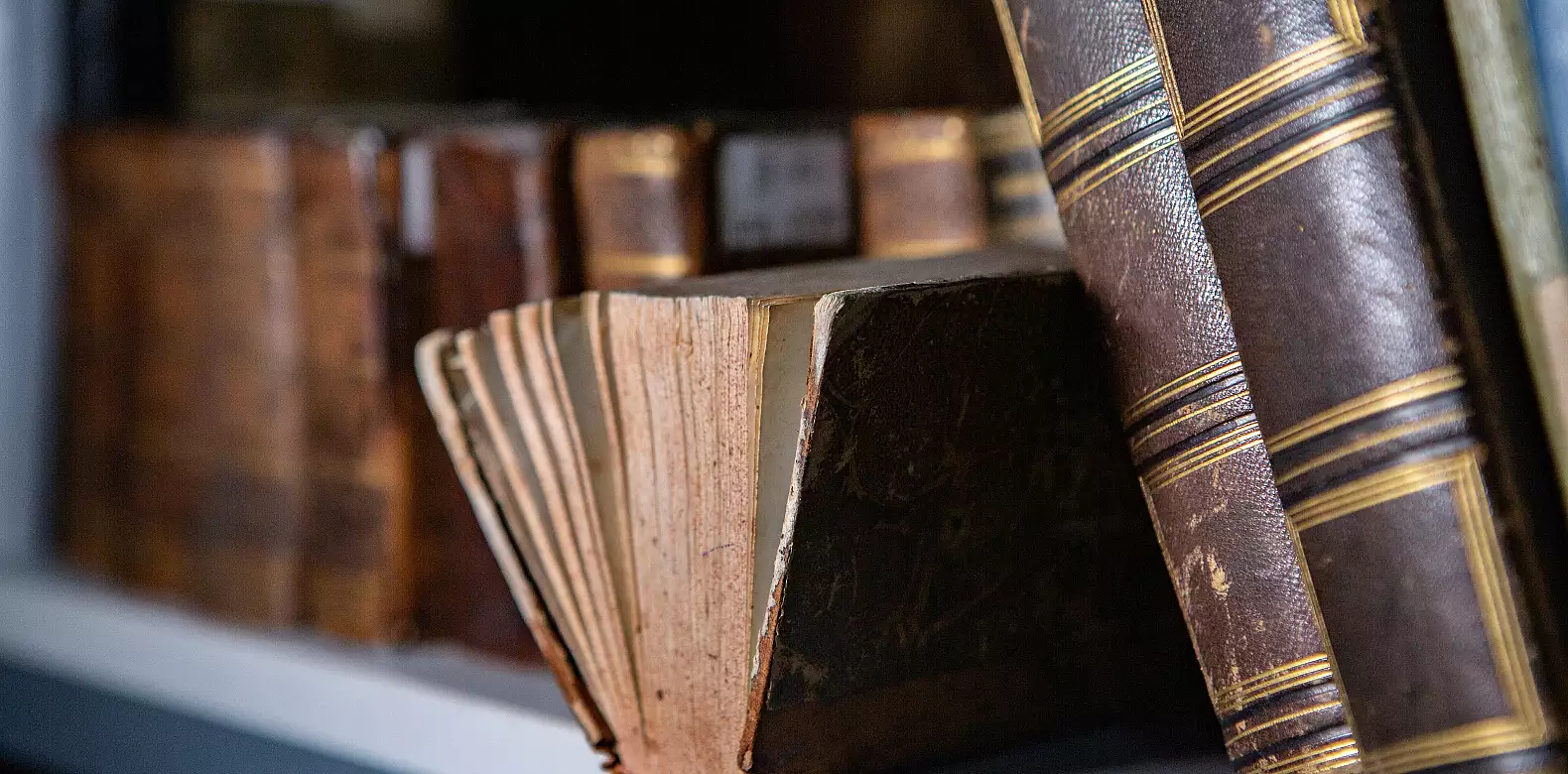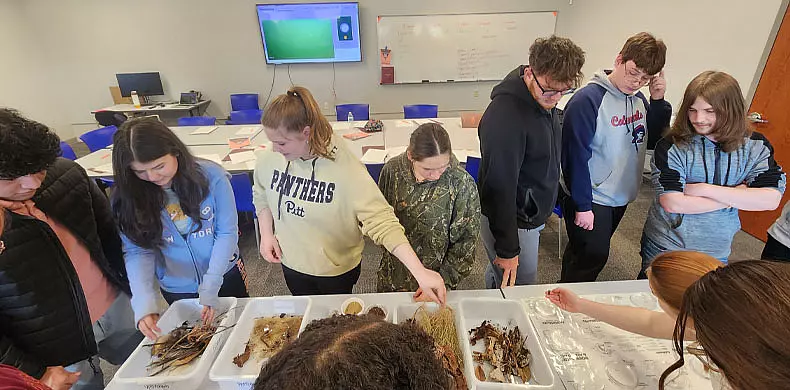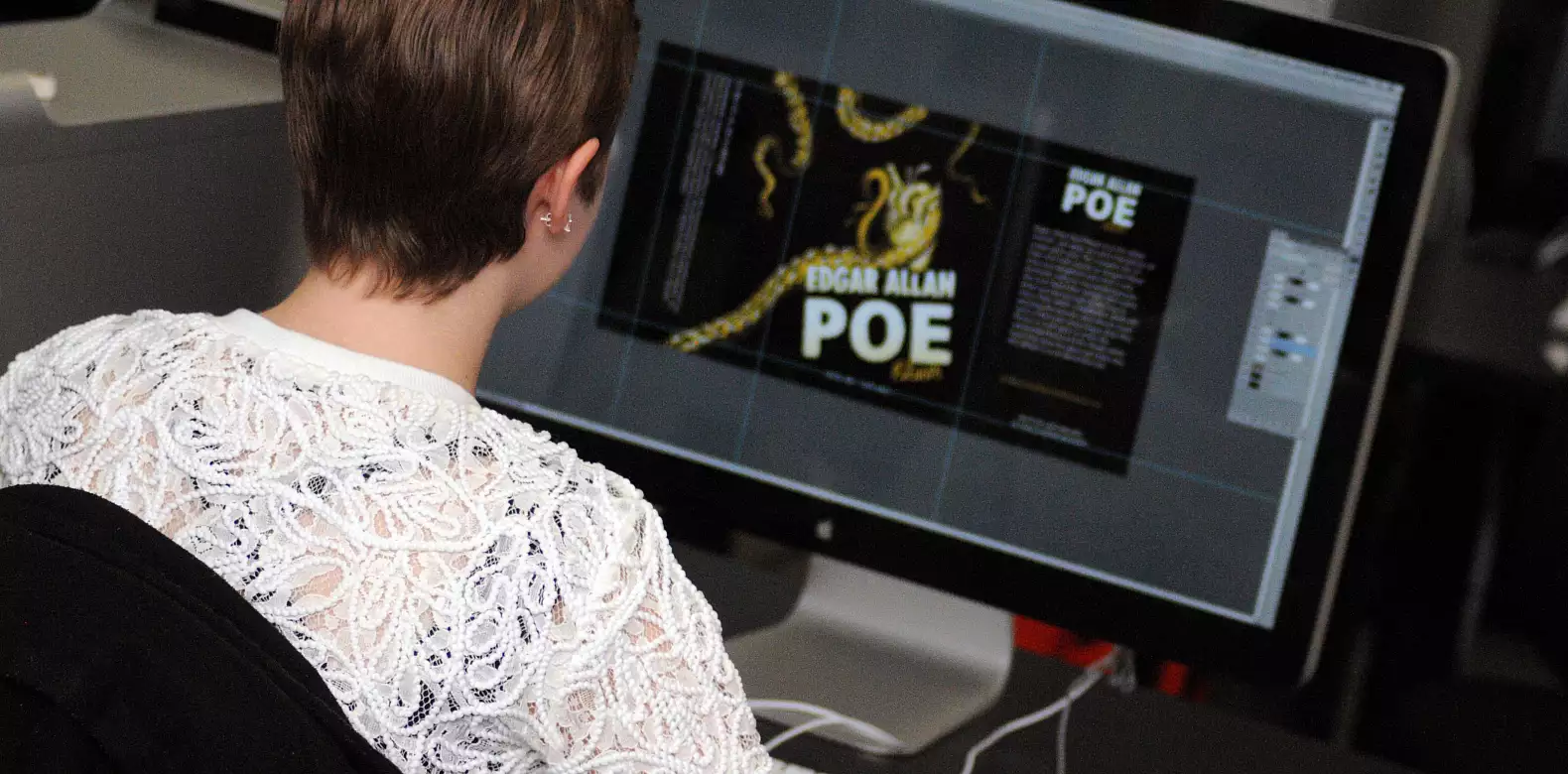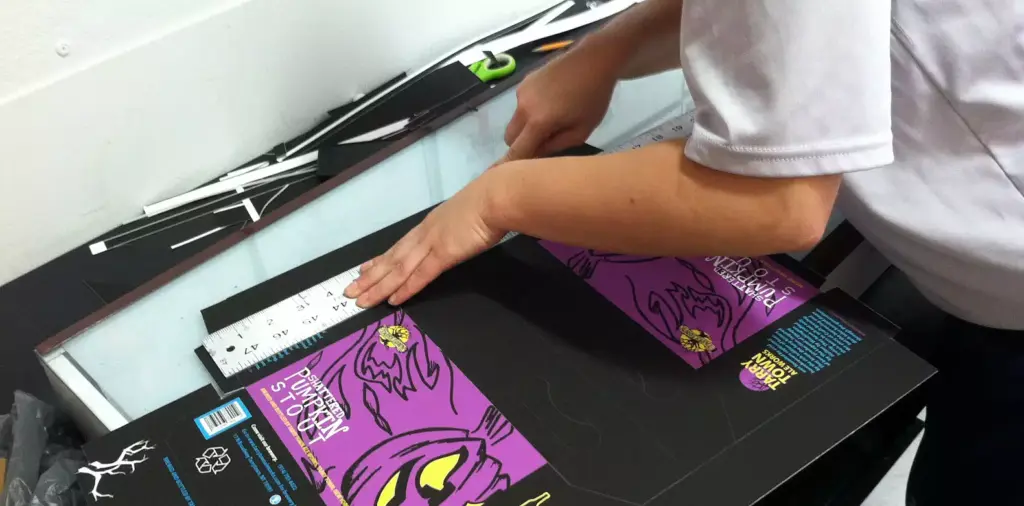Syllabus is an ongoing series of stories that gives readers an inside look at some of Susquehanna’s most interesting classes.
The Class: History of the Book, ENGL-375
The Professor: Randy Robertson, English & Creative Writing
From New York Times bestsellers to classics with a special place in our classrooms and our hearts, books have always held a quiet power over us. They can persuade us to believe or reject an argument about the world, inform us about the human condition and natural phenomena, or entertain us as gripping page-turners that inspire masterpieces of film and television. Unsurprisingly, these roles give them a much larger influence on our world than most people realize.
In History of the Book, associate professor of English & creative writing Randy Robertson shines a light on the social and political forces that shape a book’s production from its stay on a publisher or editor’s desk to the moment it arrives on shelves. He helps students examine how publishing as a process has shaped literacy, science, religion, authorship and literary property, a focus that has shifted over the years into a study of historical book banning and censorship. This shift has led the course to cover topics like American and British sexual puritanism — such as the “bowdlerization” of Shakespeare’s plays and the anti-obscenity Comstock Laws currently used to limit access to birth control — and the removal of race- or abolition-related material from textbooks dating back to the 19th century. The study of present-day topics includes the role that bias and sensitivity readers play when editing manuscripts.
“My goal in the course is to trace the roots of the current book banning debates to recurring censorship contests in European and American history, illuminating the present by digging up the past,” Robertson said. “Since much of this history is unfamiliar to students, I need to do some lecturing to provide background, but as with all my courses class discussion is central. I want students to work through these issues themselves, in conversation with me and with one another.”
The course also fits nicely into the publishing & editing and professional & civic writing majors, Robertson said, “as the two programs intersect at the point of public discourse. Publishing is not just another business; it serves a civic function.”
After taking History of the Book, creative writing and publishing & editing double major Abby Orner ’27 shares these convictions.
“My favorite thing the course covered was a text called All Minus One, which explained that society needs to be able to have constructive arguments and debates in order for ideas to grow and spread,” Orner said. “If someone has a belief about something but isn’t exposed to other ideas or reasonings, they end up with a confirmation bias.”
She also credits History of the Book with changing how she thought about the role of an author’s voice in shaping readers’ preconceptions about society and giving her an “appreciation for the craft of writing and the amount of effort it takes to get something published in the first place, but definitely a lot of hesitancy surrounding some of the practices in the publishing business. I’ve sat through many workshops where we debated why we thought the author had a character perform an action and what that action helped them achieve.”
During her postgrad writing career, Orner will use course material to help her determine where her knowledge about a given topic ends and where it might be better to involve someone who knows more. In searching for editing jobs, she plans to use it to find employers who support diversity and align with her personal values.
Learn more about Susquehanna’s English Literature, Creative Writing and Publishing & Editing majors as well as the university’s Professional & Civic Writing minor.





